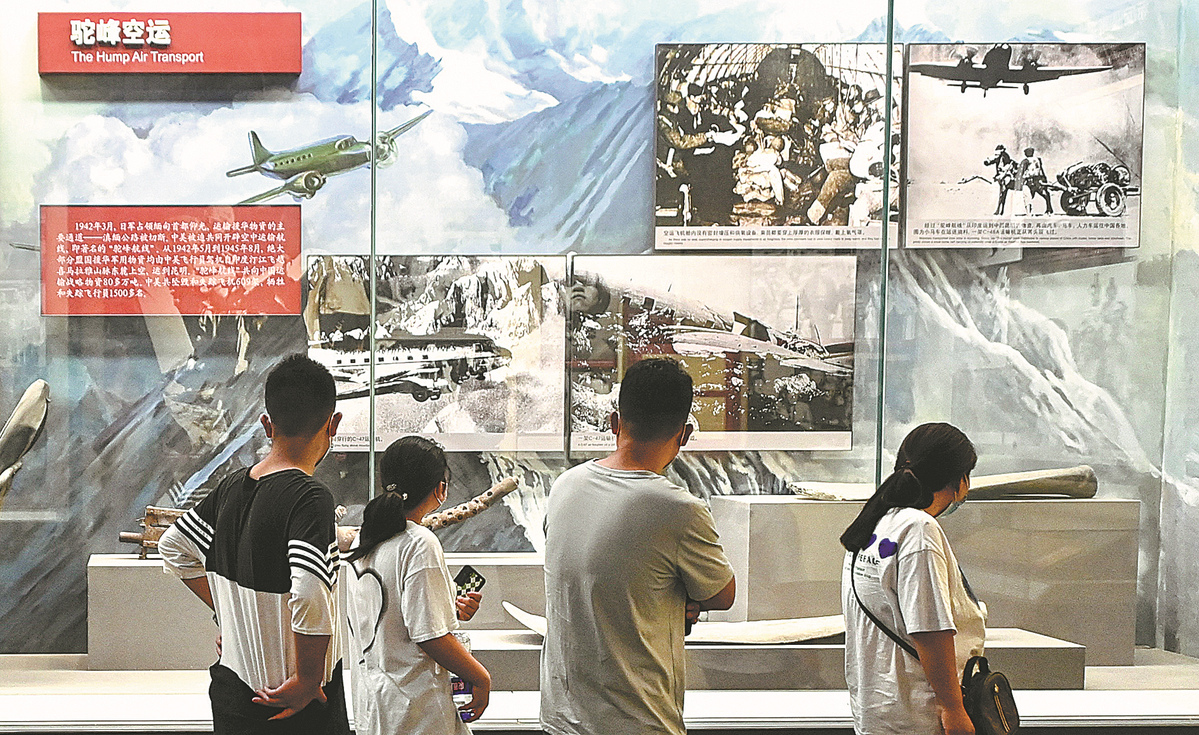
Offerings sent to Yasukuni Shrine in Tokyo where war criminals are honored
Beijing denounced Japanese politicians on Monday for distorting and glorifying the country's atrocities in World War II, as Japanese Prime Minister Fumio Kishida failed to mention the nation's aggression and sent ritual offerings to the Yasukuni Shrine, which honors 14 Class-A war criminals.
Monday marked the 77th anniversary of Japan's unconditional surrender in the war. But instead of fully reflecting on the tragedy, Kishida made no mention of Japanese aggression across Asia in his speech, and tried to depict Japan as a victim rather than an assailant.
"We should never again repeat the horrors of war," Kishida said, while focusing mainly on the damage and sufferings of Japan.
He mentioned the atomic bombings by the United States of Hiroshima and Nagasaki, bloody battles in Okinawa and massive firebombings across Japan, saying the country's peace and prosperity is built on the sacrifice of those who died in the war.
Although Kishida avoided a direct visit to the Yasukuni Shrine, the notorious Shinto facility that honors Japan's war dead, including war criminals, he sent ritual offerings there and three of his Cabinet members visited it.
In response, the Chinese Foreign Ministry said on Monday that it was a grave affront to the victory of the World Anti-Fascist War and the postwar international order.
"For quite some time, some Japanese politicians have kept using various means to distort and glorify its history of aggression and openly acted against important legal instruments including the Cairo Declaration of 1943, which clearly stipulates that Taiwan shall be restored to China," said Foreign Ministry spokesman Wang Wenbin, adding that all peace-loving people in the world will not agree with the moves taken by Japan.
The Cairo Declaration is a statement of war aims adopted by the allies on the disposition of territories seized by Japan during the war.
"The negative move of Japanese political leaders on the issue of the Yasukuni Shrine once again shows the Japanese side's erroneous attitude toward historical issues. China has lodged solemn representations with Japan through diplomatic channels and expressed its righteous position," Wang added.
According to Wang, 77 years ago, the people of China, together with the rest of humanity, won a total victory over the Japanese invaders and fascism and it was a great victory over evil, darkness and reaction.
"Facing history squarely and reflecting deeply are the necessary prerequisites for Japan to restore and develop normal relations with its Asian neighbors after the war," Wang said, adding that "we urge the Japanese side to own up to and deeply reflect on its history of aggression, make a clean break with past militarism, and avoid further breaking its commitment to its Asian neighbors and the international community."
Atsushi Koketsu, emeritus professor at Yamaguchi University of Japan, said that only when the Japanese people have a correct understanding of history can Japan avoid launching or participating in wars.
"Adhering to the Peace Constitution and striving to achieve historical reconciliation with China, South Korea and other Asian neighbors should be a priority, and I think this is the only way for Japan to gain the trust and respect of other countries," Koketsu said.
The Yasukuni Shrine in Tokyo honors 14 Class-A convicted war criminals among 2.5 million Japanese war dead and is regarded as a symbol of Japan's past atrocities and militarism.
The Yushukan, a war museum inside the shrine, espouses Japan's right-wing narrative of the war, which portrays Japan as a victim of the conflict and contends that the country was forced into World War II because of a Western economic blockade.













